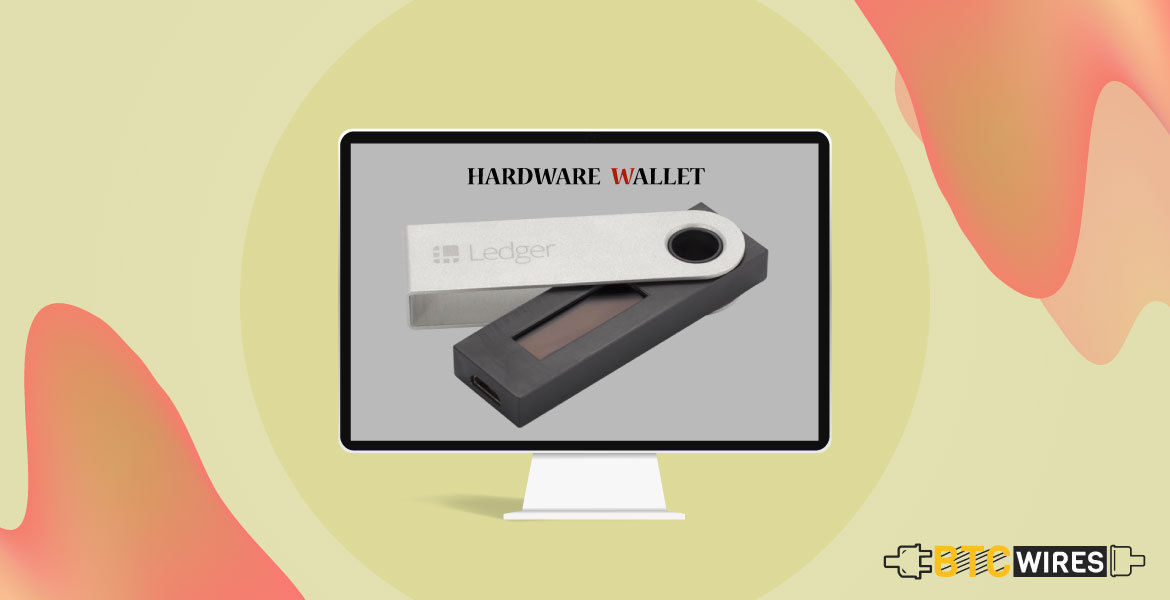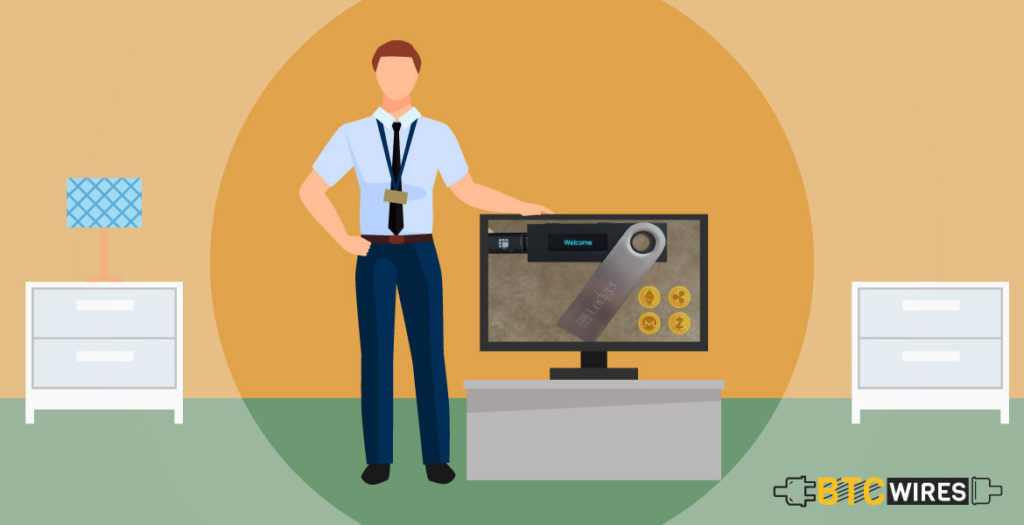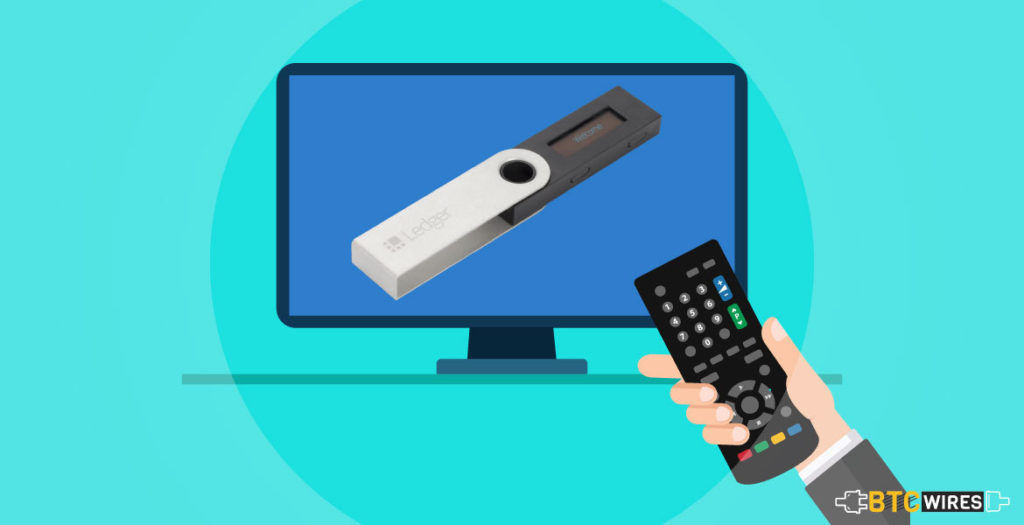A hardware wallet is a physical electronic device, particularly designed

A hardware wallet is a physical electronic device, particularly designed to protect an individual’s cryptocurrency funds by securing their private keys.
The idea behind this wallet is to isolate the private keys from online methods of storage, like a computer or a smartphone, which are more susceptible to being compromised by hackers.
Storing your private keys offline prevents against this, as hackers would need to steal your hardware wallet physically to gain access to a user’s private keys.
Even then, most hardware wallets need a PIN code for access, providing an enhanced level of protection.
You May Also Read: 5 Best Hardware Wallets for Cryptocurrency of 2019
Cryptocurrency Hardware Wallets

Hardware wallets are the small devices plugged into either your computer or your smartphone. They securely generate your private keys in an offline environment.
The innovation is that many wallets generate private keys on the internet connected devices such as computers or cell phones.
By generating your private keys on an offline device, your keys become out of the reach of hackers.
Merits:
- Private keys are not exposed to your computer
- Most hardware wallets are encrypted with a PIN number or other security features
- Hardware wallets can’t receive computer malware
- You need the hardware to confirm a transaction, preventing remote hacking
- In case you lose your hardware wallet, you can still recover your coins
Demerits:
- Not free
By and large, hardware wallets are the most secure sort of wallets than Desktop Wallet and Mobile Wallet, with numerous security features built-in and support for different types of digital currencies.
If you have significant crypto holdings that you wish to store safely, you should strongly consider getting a hardware wallet.
You May Also Read: Top 5 Desktop Wallets for Cryptocurrency in 2019
Concerning Risks with Hardware Wallets

In spite of the strong security protection that comes with hardware wallets, there are some security risks which exist.
For instance, the risks concerning RNG (Random Number Generator) and imperfect implementation.
RNG – Hardware wallets use Random Number Generator for generating a wallet’s private keys. While this generation of random characters makes it harder to work out what your private key is and the randomness of RNG itself is daunting to validate.
An RNG that isn’t all that random, and follows a particular pattern, may result in your private keys getting hacked.
Imperfect Implementation – Subsequently, a hardware wallet is only as secure as its implementation. Software or hardware bugs in a hardware wallet can be exploited by hackers in their attempt to access a user’s funds.
Verifying that a hardware wallet is as secure as possible is of the paramount importance in making sure that private keys aren’t compromised.
While not a complete security solution, but hardware wallets are one of the most secure approaches towards your funds’ protection.
You May Also Read: 7 Best Mobile Wallets for Cryptocurrency of 2019
Commercial Hardware Wallets

The most popular commercial hardware wallets are TREZOR wallet, Ledger Nano S wallet, and KeepKey wallet.
TREZOR – TREZOR was the first ever hardware wallet that entered the marketplace in August 2014. The wallet has developed a good reputation for itself over the period of time.
A TREZOR wallet will cost you nearly $100. Currently, it supports the Bitcoin, Ethereum, Litecoin, ZCash, Ethereum Classic, Dogecoin, Dash and Bitcoin Testnet.
Ledger Nano S – Released in August 2016, the Ledger Nano S has managed to cement itself as a solid yet reliable hardware wallet provider.
The Ledger Nano S is the cheapest of the currently available hardware wallets. It costs you around $80.
It currently supports Bitcoin, Ark, Dash, Bitcoin Cash, Ethereum, Dogecoin, Komodo, Ethereum Classic, PoSW, Litecoin, Stratis, Ripple and ZCash.
KeepKey – Released in September 2015, KeepKey rounds out the list of the most well-recognized commercial hardware wallets in the marketplace.

This hardware wallet is the largest of the three hardware wallets and provides many of the same security features as TREZOR and Ledger Nano S.
With a cost of nearly $130, KeepKey is the most expensive of the three hardware wallets. It currently supports cryptocurrencies like Bitcoin, Dogecoin, Litecoin, Testnet, Namecoin, Dash and Ethereum.
You May Also Read: Top 5 Multi Cryptocurrency Wallets of 2019
Final Words
The significance of the security in crypto space can’t be understated. You wouldn’t have lax security with regards to traditional fiat currency lying in your bank, so why should that be the case for your cryptocurrency?
It makes no difference which way you choose to store your cryptocurrency funds, it is important to ensure that it is well secured.
In this regard, hardware wallets offer one of the safest ways possible in storing as well as protecting your digital assets.
Here are a Few Articles for you to Read Next:

